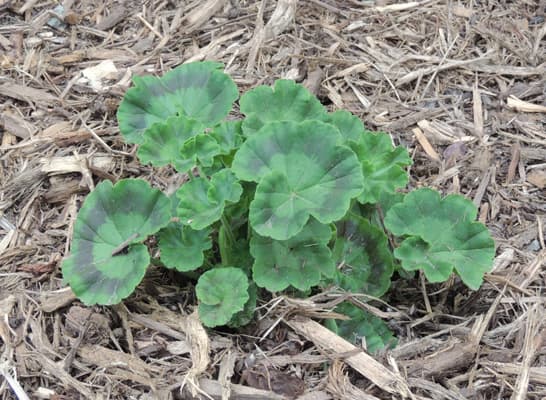Garden and Landscape Mulch

About Garden Mulch
Garden mulch is very useful in both gardens and landscaping. It can be used around almost all plants: trees, bushes, shrubs, flowers, vegetables, and herbs. It has many benefits and uses, from decorative, to practical uses in keeping weeds down and fertilizing your plants, to name a few. Most likely you are or will be, using some type of mulch around your yard, and in your gardens. In addition to the garden, it is used as landscape mulch providing a neat appearance to those hard-to-manage areas like hillsides where planting grass and later mowing it is impractical.
Compost makes about the best mulch you can use. I addition to making your garden or landscape more attractive, it feeds your plants as it breaks down. The only downside to using compost as mulch is that it breaks down quickly and a second application may be needed later in the season.
Definition of Mulch
By definition, mulch is just about any material used to cover the ground or soil. Landscape mulch makes any area more attractive. It is used most often around some of your favorite plants and trees. Not all mulches are organic. Those that break down over time can add to soil fertility and structure. But, they can also alter soil pH for good, or bad. A few weeks after applying it in your gardens, we recommend you perform a soil test.
Learn Soil Testers.
Benefits and Uses of Garden Mulch
Decorative – For landscaping applications, this is the #1 reason gardeners and homeowners use mulch. It simply makes yards and gardens attractive. Garden stores offer a wide assortment of mulches, which add to the beauty of your home and garden.
Warm or cool soil – Thin, black, or dark layers of mulch absorb heat from the sun, transferring some of the extra heat to the soil. White or light-colored mulches reflect much of the intense rays of the sun, helping to keep soil temperatures lower.
Keep weeds down – Thick or impenetrable layers of mulch, keep all but the peskiest weeds from sprouting and growing. It’s a whole lot easier to lay down a thick layer of mulch than spend countless hours weeding over and over again.
Retain soil moisture – Any combination of sunny, dry, and windy conditions, releases moisture from the soil. Mulch helps to retain the moisture for your plants. That translates to healthier plants, less time spent watering, and lower water bills.
Helps avoid soil erosion – Mulch protects the soil from heavy rains. Excess water is diverted away.
Fertilize plants – Not all mulches fertilize the soil. However, if you use compost as a mulch, it will help to fertilize your soil as it breaks down.
Types of Garden Mulch
There are numerous types of mulch, to fit your needs.
Decorative Stones – Wildly popular as a landscaping mulch around trees, bushes, and flower gardens. Long-lasting and low maintenance.
Compost – This is a great short-term mulch. Use it in flower and vegetable gardens. As it breaks down, it provides a wealth of fertilizer and micro-nutrients to garden plants. It offers a treasure trove of N-P-K and micro-nutrients. Compost is broadly used by home gardeners. Use compost as a mulch in flower and vegetable gardens. Compost breaks down fairly quickly. So, re-apply it multiple times during the year.
Pine Bark – This is a very popular, and inexpensive mulch. It creates an attractive appearance. Pine bark is acidic. As it slowly breaks down, it will make the soil more acidic.
Other Barks – There’s a wide variety of bark mulch, offering homeowners a wide selection of landscaping around their homes. The pH of each type of bark varies and can affect soil pH over time.
Cocoa Shells – They were the rage in the 1960s and 1970s. When this mulch is first applied, it has a very strong, appealing aroma. Cocoa Shells were commonly used as a mulch around flower gardens, trees, and shrubs.
Plastic Sheeting – It’s often used to knock out weeds. Once the weeds are gone, many people just leave it on the soil. Just remember: black plastic will raise soil temperatures, while white plastic will lower it.
Straw – If you are planting new grass in hot, dry weather, chances are you mulch straw over the seeds until they sprout. Some of the straw breaks down into the soil during this process. Then, rake any leftover straw off the new lawn.
Related Articles
Please support our site. Shop for:
- rmmatthews100@hotmail.com
- 585-721-6528
- Rochester, NY
©1999-2024 GardenersNet.Com, All Rights Reserved

